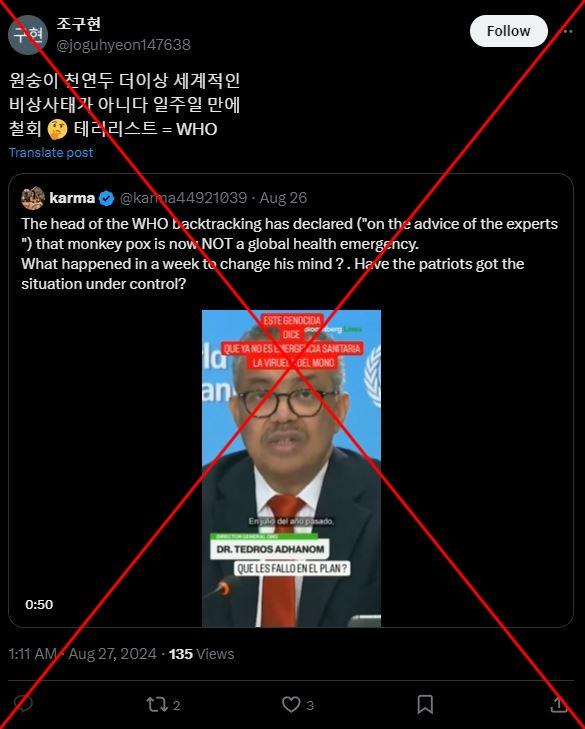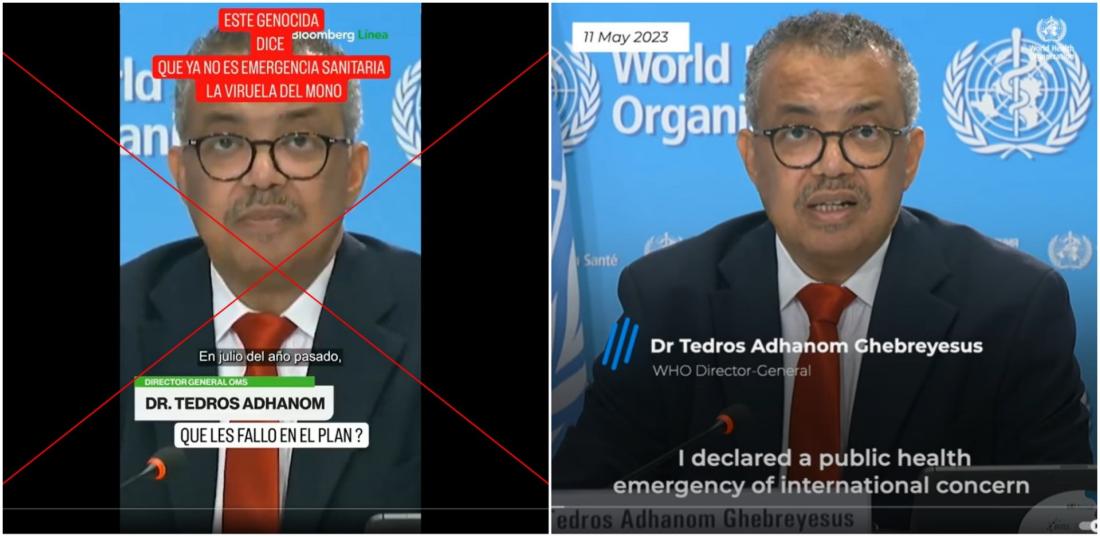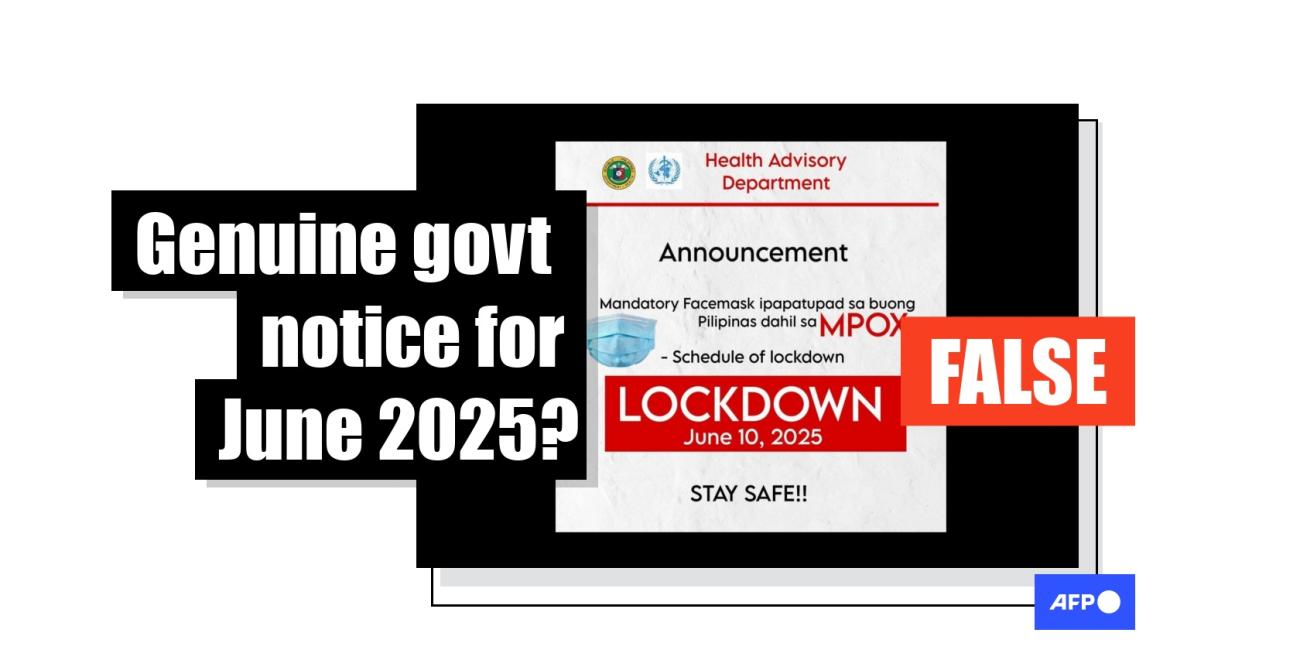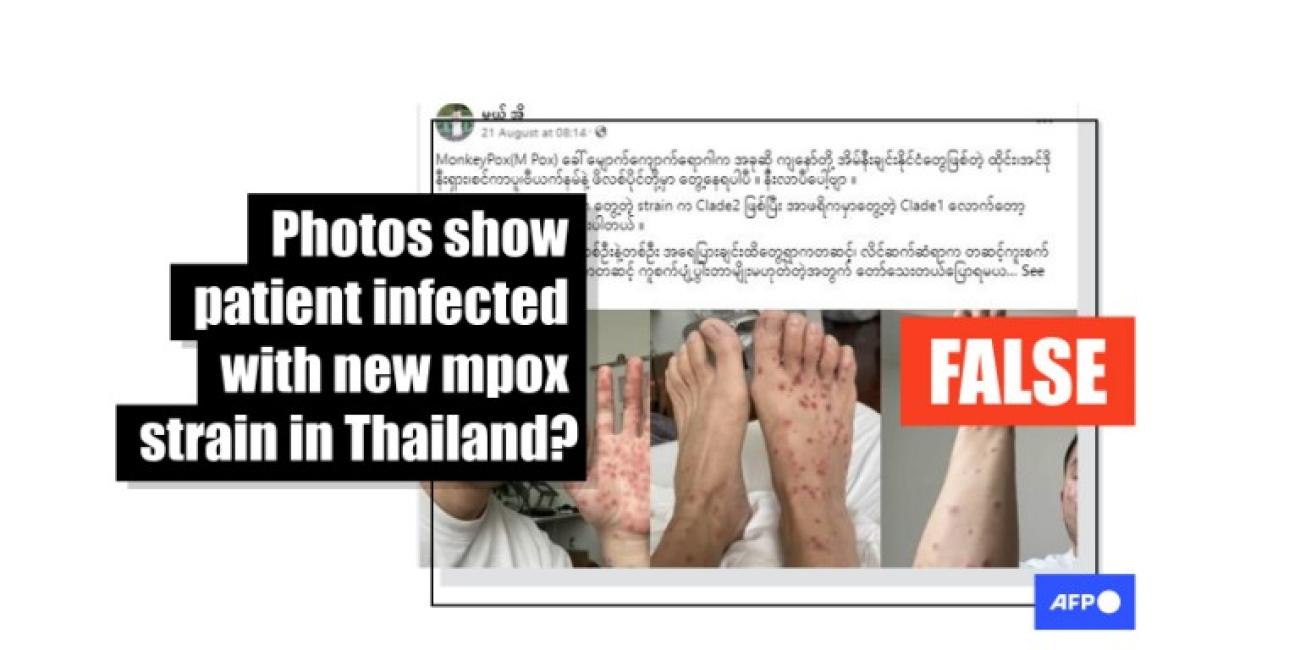
Video shows WHO director lifting mpox emergency status in 2023, not 2024
- This article is more than one year old.
- Published on August 30, 2024 at 10:47
- Updated on August 30, 2024 at 17:54
- 3 min read
- By Sofia BARRAGAN, AFP Argentina, AFP France, AFP South Korea
- Translation and adaptation Celine SEO
"Monkeypox is no longer a global emergency. They've taken back their decision within a week," read part of a Korean-language post on social media site X on August 27, 2024.
It included a 50-second video that showed WHO chief Tedros Adhanom Ghebreyesus saying: "I'm pleased to declare that the mpox is no longer a global health emergency."

AFP debunked the claim in Spanish and French after it circulated in those languages.
A similar false claim has spread in English and Japanese posts.
Public health emergency
Mpox is a viral disease that causes fever, muscular aches and large boil-like skin lesions. It is transmitted to humans by infected animals, but it can also be passed from human to human through close physical contact (archived link).
On August 14, 2024 the WHO declared mpox a public health emergency of international concern (PHEIC) as cases surged in the Democratic Republic of Congo (DRC) and spread to nearby countries (archived link).
This was the second PHEIC -- the highest level of alarm -- declared by the global health agency on mpox. It had previously declared a public health emergency that lasted from July 2022 to May 2023.
DRC's deadly current outbreak stems from Clade 1 mpox, mostly found in the continent's central areas. But a distinct second epidemic hitting mostly adults in the same country is linked to variant 1b, a derivative of Clade 1 that has only appeared recently.
Someone living in the US or Europe is much more likely to receive swift, appropriate medical treatment for mpox than patients in most African nations.
The danger mpox presents "strongly depends on the quality of basic care," said Antoine Gessain, a virologist specialising in the disease told AFP (archived link).
Misrepresented video
The 2022-23 mpox epidemic was caused by Clade 2 mpox, which is mostly present in western Africa, but also found in South Africa.
In that outbreak, a small number of people who died -- around 200 out of 100,000 cases -- were mostly adults whose immune system was already weakened by HIV infection.
The WHO announced on May 11, 2023 that this earlier mpox outbreak no longer constituted a global public health emergency citing a significant drop in reported cases at the time (archived link).
The circulating video shows WHO chief Tedros announcing the end of the public health emergency.
A reverse image search on Google found the video was posted on the WHO's YouTube channel on May 11, 2023 (archived link).
In the longer video, Tedros could also be heard saying: "Almost 90 percent fewer cases were reported in the past three months compared with the previous three months.
"While we welcome the downward trend of mpox cases globally, the virus continues to affect communities in all regions, including in Africa where transmission is still not well understood."
The UN agency responded on August 30 to the false claim of lifting the emergency on X (archived here) in Spanish, saying: "This is inaccurate and misleading. This video is from 2023."
Below is a screenshot comparison of the video shared in the false posts (left) and the footage posted by the WHO in 2023 (right):

AFP has previously debunked false claims regarding mpox here, here and here.
This was updated to add a comment on X from the World Health OrganizationAugust 30, 2024 This was updated to add a comment on X from the World Health Organization
Copyright © AFP 2017-2026. Any commercial use of this content requires a subscription. Click here to find out more.
Is there content that you would like AFP to fact-check? Get in touch.
Contact us




